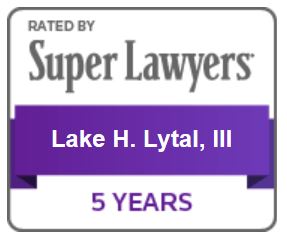No one expects to purchase a product only to find that it is defective in some way. When it does happen, there’s a solution – return it! So when something worse happens, you may wonder, “Can you sue a company for a defective product?”
What if the product has caused injury to yourself or a loved one? How do you proceed and who do you hold accountable for the costs of the injury?
When you decide to file a claim, the first step is to figure out who to file it against. You need someone to be held liable if you want to file a product liability suit of any type. This may be the most difficult step, as there are many entities and individuals who collaborate on the production and distribution of most products that enter our lives.
Let’s determine what a product liability suit is and how you can sue a company for a defective product.
What is product liability?
The United States has product liability laws to help protect consumers from the thousands of injuries that occur annually due to dangerous products. These laws help determine who is responsible for defective products and assist individuals in collecting damages.
A product liability case occurs when a manufacturer or seller is being held liable by the plaintiff for putting a defective or dangerous product on the market for consumers to purchase.
What is considered a defective product?
A defective product is any product that does not meet the reasonable expectations of a customer. For example, if a customer purchased shoelaces for their shoes and used them properly for this purpose, they would reasonably expect them to be a safe, functional product.
However, if these shoelaces turn out to be highly combustible and cause the shoes to catch fire, this is outside the reasonable expectations of the product.
Products may also be eligible for a defective product case if they are in breach of warranty or show negligence on the part of the manufacturers. For example, toys may show negligence if they are smaller than a child’s windpipe and can cause choking.
The most common causes of product liability are:
- Design Defects – A flaw in the product’s design that causes injury. For example, designing a toy that is small enough for a child to choke on or creating a seatbelt that chokes the victim on impact.
- Manufacturing Defects – These defects occur during the process of making the product where it may deviate from the design. For example, a toy has a piece that can pop off and cause the product to break. Also, any product with missing pieces that lead to instability and injury.
- Failure to Warn – If a product is potentially dangerous, it must come with instructions for use. If there is no warning and a customer is injured as a result, then they can take legal action. For example, if a medication causes drowsiness but does not indicate this on the bottle. Or, an appliance that can electrocute you if you do not use it properly.
Should you sue a company for a defective product, or can you sue someone else?
There are multiple entities that can be sued for a defective product. These include the companies responsible for producing the product.
Generally, you’ll want to include all of the parties involved in creating the product in your legal case. An attorney with experience in product liability law can help you narrow it down as necessary and collect evidence to conclusively determine liability.
Here’s who you may be able to sue.
Manufacturer
Typically, the manufacturer is the first company that deals with the product. They include the designers and the manufacturers of the product. However, if these are separate entities, you’ll want to include both.
You will need to sue a manufacturer if the product includes a design or manufacturing defect that led to your injury. The marketing teams of manufacturers may be responsible for writing safety instructions. If so, you can include them as well.
Distributor
The distributor is the company that liaises between suppliers and retailers. They often handle shipping between locations and are relied upon for following local product liability laws, such as the required size of toys for safe use by children and labeling required on clothing.
Retailer
The retailer is the entity that sells the product. You will only bring a suit against the retailer you purchased the item from, not all retailers who sell the item. They may be responsible for your injury if they knowingly sold a defective product or did not supply accurate information when you purchased it.
What must be proven to sue a company for a defective product?
To collect damages in a product liability case, you will need to prove your claim. This begins much the same as a personal injury claim, where you prove that the liable party had a societal responsibility to sell quality products that work safely when used as intended.
If the defendant did not do this, then they have breached their duty to you. To prove that their negligence impacted you, you will need to prove that your injuries were caused by their product. Your medical records will be critical to proving this point.
Finally, your lawyer will seek damages relating to your injuries to ensure that you don’t pay out of pocket for someone else’s negligence.
Contact a Product Liability Lawyer for Assistance
Knowing if you can sue a company for a defective product is just the beginning. Going up against big companies in product liability cases is incredibly intimidating. Without any technical experts on your side, it can be difficult to prove that they were negligent or that their product is responsible for your injuries. A West Palm Beach product liability lawyer or a Boca Raton product liability lawyer can help with any difficult questions you have.
At Lytal, Reiter, Smith, Ivey & Fronrath, we’re here to ensure that you get the help you deserve. Contact us today for your no-obligation consultation.












